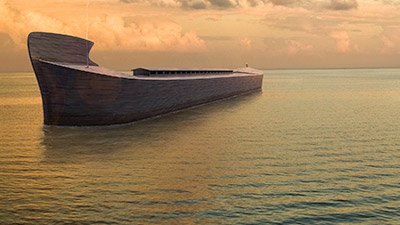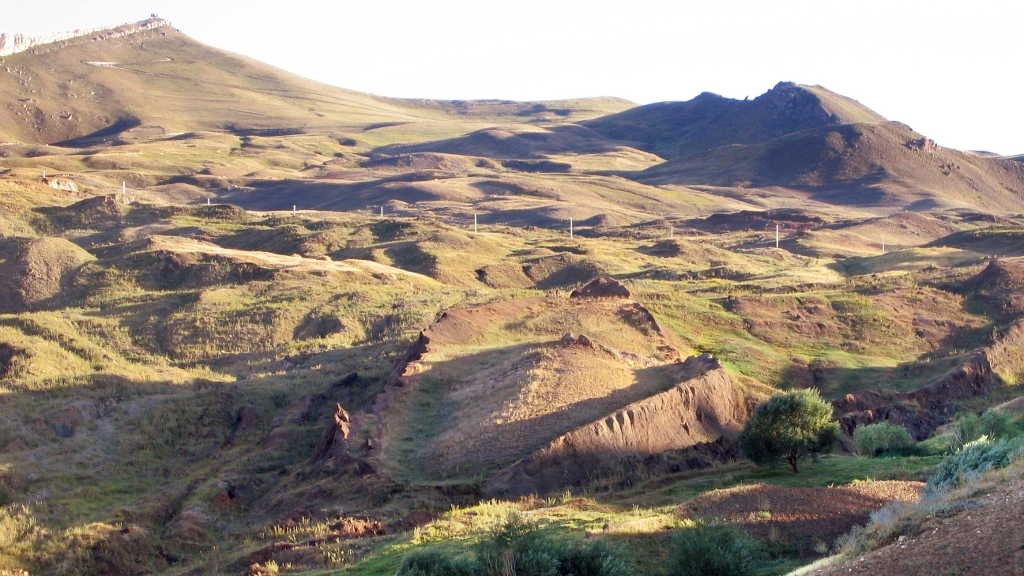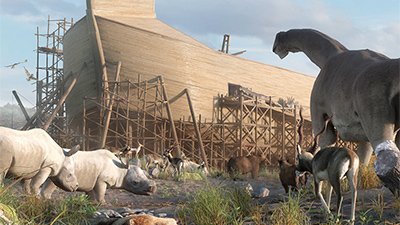
Feedback: Miraculously Calm Waters Around the Ark?
Tim Chaffey, AiG–US, responds to a reader who believes that God may have miraculously calmed the waters around Noah’s Ark.
In reference to the article by Tim Chaffey “Did the ark have a sail?”, I am glad to see that someone else has a concern about the design of the Ark as you present it. My thoughts on the matter is this: The design speaks loudly that you are relying on man’s idea as to what it took to with stand the rigors of the deluge of the flood instead of giving God’s protection credit for the survival of the Ark and its passengers. Jesus had calmed the waters in Mark 4:39. Therefore it wouldn’t be absurd to think that the Ark floated in calm waters for the entire event. Thank you for hearing me out as this has been a concern from the first time I saw the new pictures of the Ark.
Hello,
Thank you for contacting Answers in Genesis and for your comments about the Ark’s design. As the author of the article you referenced, I wanted to thank you for taking the time to read it and send you a few brief comments to consider.
God could have calmed the waters around the Ark, but we are not told that He did this, so why should we assume that He did?
First, as long as you aren’t implying that the entire Flood was tranquil, then I agree that “it wouldn’t be absurd to think that the Ark floated in calm waters for the entire event.” I do not doubt at all that God could have calmed the waters around the Ark, but we are not told that He did this, so why should I assume that He did? Does the Bible give us good reasons to believe that He calmed the waters?
Second, I don’t agree that “the design speaks loudly that [we] are relying on man’s ideas.” Since we have no record of God calming the waters around the Ark or of Him telling Noah that He would do so, it is not wrong to think that Noah may have faced stormy seas. In the example you cited, the disciples endured the great windstorm for some time before the Lord calmed the storm. While Jesus slept, “the waves beat into the boat, so that it was already filling
” (Mark 4:37). So if we are to use this account as a possible example of what happened around the Ark during the Flood, wouldn’t it be consistent to assume that Noah and his family faced turbulent waters for a while?
I tend to refrain from thinking something miraculous happened in a given account unless Scripture tells us that a miracle did occur. Certainly there are miraculous elements in the Flood account, but we need not add miracles to it. God never said He would provide His followers smooth sailing through life, nor did He promise to remove all difficulties when He calls His people to service. The Apostle Paul was beaten, stoned, flogged, and eventually executed for obediently preaching the gospel (2 Corinthians 11:22–29; 2 Timothy 4:6–8). In fact, he saw suffering persecution for the name of Jesus as a normal and joyous privilege of the Christian faith (Philippians 3:10; Colossians 1:24; 2 Timothy 1:8). After being arrested and beaten, the apostles rejoiced “that they were counted worthy to suffer shame
” for the sake of Christ (Acts 5:40–41). And Hebrews 11:35–38 reveals that some of God’s most faithful followers endured harsh trials, including scourging, imprisonment, and death.
The Israelites still had to go to war with the inhabitants of the land of Canaan even though God guided them. In some cases, God intervened in a special way, such as raining down hailstones on the Amorites and extending the length of the day so that Joshua had more time to defeat them (Joshua 10:10–13). We should not assume that God acted this way in every battle, since we are specifically told that this battle was unique (Joshua 10:14).
When Solomon built the Temple, God did not cut and move all the rocks and timbers for him—thousands of people worked extremely hard for seven years to see the construction project to its completion (1 Kings 6:38). When Nehemiah led the Israelites in rebuilding the wall of Jerusalem, half of the people worked on the wall while the other half held “spears from daybreak until the stars appeared
” (Nehemiah 4:21) because of the threats from those who wanted to prevent them from finishing their work. We should not think that these actions displayed a lack of trust in God—Nehemiah and his fellow Jews demonstrated their dependence upon God through their prayer (Nehemiah 4:9).
Remember that God has blessed each of us with a mind that can be used to problem solve. He expects us to be good stewards of what He has given us, so it is consistent with Scripture to think that Noah and his family members figured out numerous complexities involved in the building of the Ark and its voyage. For example, the Bible doesn’t tell us that God instructed Noah to bring water on board the Ark,1 but we are fairly certain that he would have needed plenty of it. Did he store tons of potable water on the Ark before the Flood started? Did he collect and store rainwater during the Flood? Perhaps he did both. Maybe God miraculously kept the drinking vessels and watering troughs full. We cannot be sure since the Bible does not provide these details.
The point is that it does not detract from God’s greatness to suggest that Noah and his family were expected to figure out how to accomplish particular tasks. We know that He faithfully obeyed God’s instructions: “By faith Noah, being warned by God about things not yet seen, in reverence prepared an ark for the salvation of his household, by which he condemned the world, and became an heir of the righteousness which is according to faith
” (Hebrews 11:7).
Third, in areas where Scripture is silent (such as certain details about the actual design of the Ark), Christians have the liberty to speculate about what may have been—as long as those ideas are consistent with the rest of Scripture. In this case, I think either view is a possibility, and as clearly stated in the original article, we are not dogmatic about the Ark having a bow fin, although this design demonstrates some of what we have learned from studying other ancient ships. Who is to say ancient ship design wasn’t influenced by the Ark’s design? At the Ark Encounter, we will definitely emphasize God’s providential care for the Ark’s passengers, both human and animal.
In the cases where Scripture is silent, we must be gracious toward those who disagree with our conclusions. For whatever reason, God has chosen not to divulge the exact design of the Ark. We certainly appreciate it when fellow believers can discuss these things in a Christ-like manner.
Finally, consider that the Ark was God’s means of protecting Noah and the other passengers. So, rather than detracting from the credit due to God for His provision, the fact that we are showcasing the Ark is a powerful way for us to declare to the world that God cares for His creation and that He provided for Noah’s family. More than that, by preserving the Ark’s inhabitants God saved the ancestors of every person on this planet. Most importantly, the Son of God would become one of Noah’s descendants. His sacrificial death on the Cross and subsequent Resurrection from the dead provide the only means by which man can be reconciled to God. So by preserving Noah, God ultimately protected the hope of redemption in Jesus Christ.
In Christ,
Tim Chaffey, AiG–US
Footnotes
- God did tell Noah to bring food on the Ark for his family and for the animals. “
And you shall take for yourself of all food that is eaten, and you shall gather it to yourself; and it shall be food for you and for them
” (Genesis 6:21). It may be that bringing water on the Ark is inherent in this command, but it is not specifically stated.
Recommended Resources

Answers in Genesis is an apologetics ministry, dedicated to helping Christians defend their faith and proclaim the good news of Jesus Christ.
- Customer Service 800.778.3390
- Available Monday–Friday | 9 AM–5 PM ET
- © 2025 Answers in Genesis




